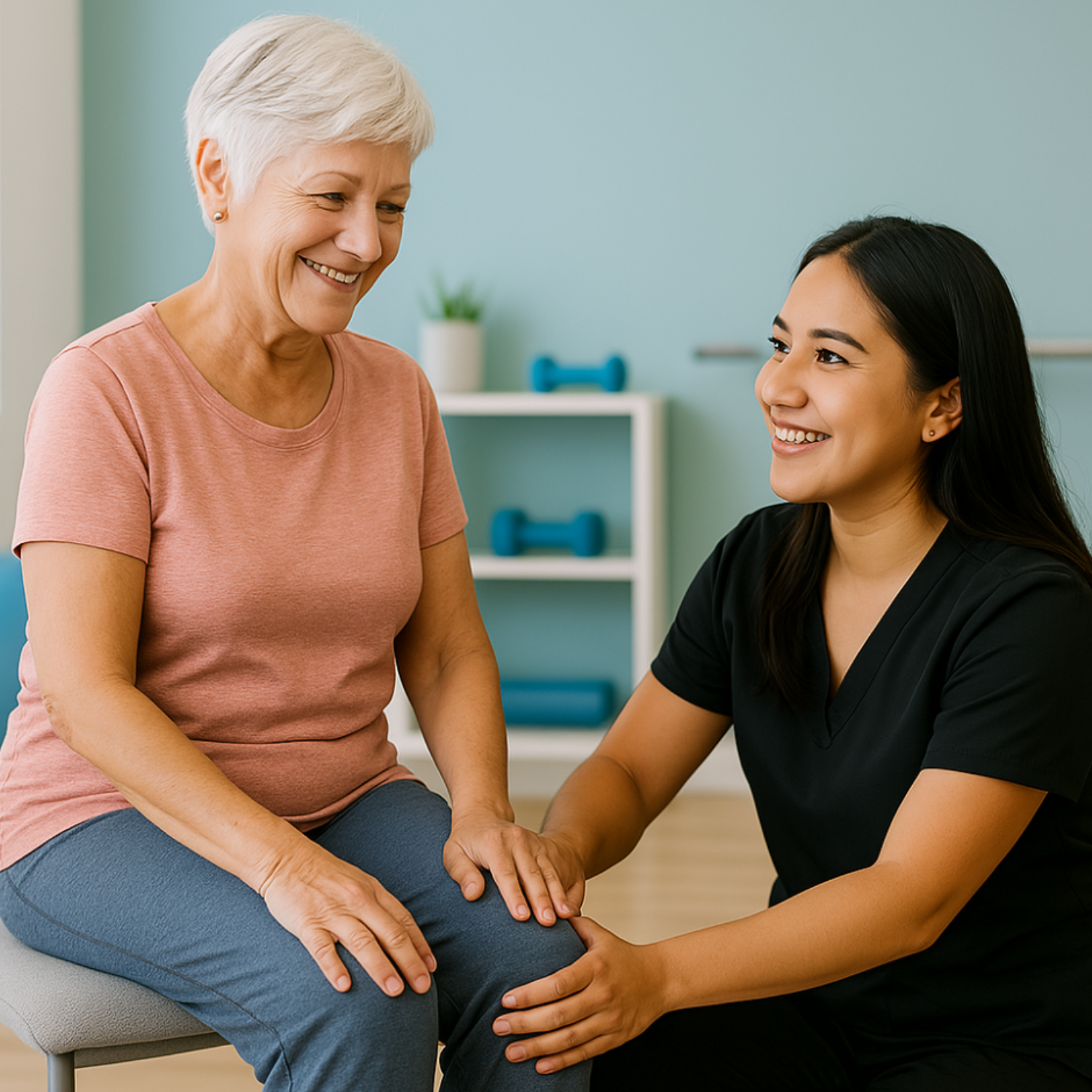Effective Non-Surgical Remedies
Physical Therapy
A customized exercise plan helps strengthen the muscles that support your knees—especially the quads, hamstrings, and glutes. This can ease pressure on the joint, reduce pain, and improve balance and stability.
Activity Modification
Changing the way you move can prevent further injury. We’ll teach you how to avoid positions and habits that stress your knees—and show you safer, smarter ways to bend, lift, walk, or kneel.
Ice and Heat Therapy
Ice helps reduce swelling and numbs sharp pain. Heat can loosen stiff joints and muscles before activity. Used the right way, they’re simple and effective tools for managing flare-ups.
Bracing or Taping
Depending on your condition, we may recommend a brace or special taping method to support the joint and keep it aligned—especially helpful after a meniscus injury or with instability.
Weight Management
Even small weight loss can have a big impact. Losing just 5 to 10 pounds takes significant pressure off your knees and can reduce pain over time.
Supplements and Anti-Inflammatories
Some patients benefit from natural anti-inflammatory supplements like turmeric or omega-3s. Short-term use of over-the-counter medications may also help with discomfort—ask your doctor what’s right for you. | 
